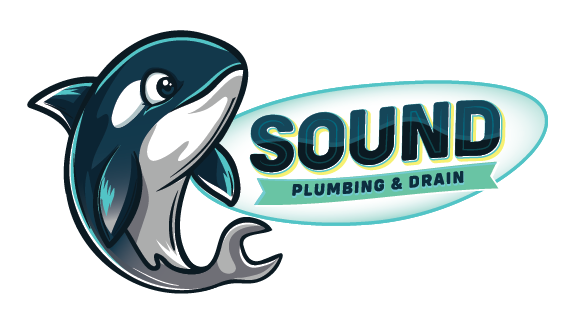Sudden low water pressure can be frustrating, especially when it happens out of nowhere. One moment your shower is perfect, and the next, it’s a weak drizzle. This drop in water pressure can be caused by anything from simple clogs and valve issues to more complex problems like leaks or municipal supply disruptions.
If your faucets, shower, or appliances aren’t getting the flow they need, don’t worry. In this guide, we’ll explore the most common reasons for low water pressure and how you can quickly diagnose and fix the problem. Whether it’s a blocked aerator, a plumbing leak, or something outside your control, we’ve got clear answers to help you restore your water pressure and get back to normal.
Here's What We Have Covered In This Article
When water pressure drops suddenly, it’s usually caused by one of a handful of common issues. Here are some areas to inspect:
- Blocked Pipes or Fixtures: Mineral deposits can build up in pipes or aerators, slowing down water flow.
- Valve Problems: A partially closed main shut-off valve or malfunctioning pressure regulator can lower water pressure.
- Leaks: Undetected leaks in your plumbing system could cause water to escape, reducing pressure.
- Municipal Supply Issues: Sometimes the problem isn’t in your home at all; nearby infrastructure repairs or water main breaks can affect your supply.
Check your faucets and fixtures first. If only one faucet is affected, the problem might be a blocked aerator. If the whole house is impacted, it’s worth inspecting the main shut-off valve or contacting your water provider.
Could Plumbing Problems Be the Culprit?
Your home’s plumbing system plays a big role in maintaining water pressure. Over time, pipes can corrode, leak, or become clogged. Here are some key plumbing-related causes:
- Hidden Leaks: Even a small leak can lead to a noticeable pressure drop. Look for signs like damp spots, water stains, or unusual water bills.
- Pipe Corrosion: Older homes with metal pipes may experience reduced flow due to rust and buildup inside the pipes.
- Burst Pipes: In colder months, frozen pipes can burst and cause sudden drops in pressure.
If you suspect a plumbing issue, it’s worth using a water pressure gauge to test your system. A plumber can also use specialised tools to pinpoint leaks or blockages.
Fast Plumbing Repairs in Your Neighborhood
Serving homes and businesses across Hazel Dell, Vancouver, Portland, and surrounding areas, our expert plumbers are ready to handle any issue. Contact us for fast, dependable service today!
Is the Problem with Your Water Supply?
Sometimes, the issue lies outside your home. Municipal water supply problems can often cause sudden drops in pressure, especially during peak usage hours. Common causes include:
- Water Main Breaks: If a nearby water main bursts, you might experience reduced pressure until it’s repaired.
- Scheduled Maintenance: Utility companies sometimes perform maintenance that temporarily affects water supply.
- Drought or Peak Demand: During hot summers, increased usage for irrigation and cooling can strain the supply.
If your neighbours are experiencing the same issue, it’s likely a municipal problem. Contact your water provider to check for outages or scheduled repairs.
Can Household Water Usage Affect Pressure?
Heavy water usage in your home can also cause noticeable pressure drops. If several appliances or faucets are running simultaneously, there might not be enough water to go around. Common scenarios include:
- Running the washing machine and dishwasher at the same time.
- Showering while someone is watering the garden.
- Homes with shared supply lines between flats or units.
Try staggering your water usage to see if it improves the flow. Installing a pressure-boosting system can also help if your household frequently runs into this issue.
Plumbing Upgrades for Homes and Businesses
From water heaters to trenchless solutions, we serve communities like Hazel Dell, Salmon Creek, Vancouver, and Portland. Upgrade your system with our expert team—get a free quote now!
How Can You Diagnose Low Water Pressure at Home?
Diagnosing water pressure problems can be straightforward if you know where to look. Here’s how to start:
- Check All Fixtures: Test each faucet to see if the issue is isolated or widespread.
- Inspect the Valves: Ensure the main shut-off valve and pressure regulator are fully open and functioning correctly.
- Use a Pressure Gauge: Attach one to an outdoor faucet to measure the pressure. If it’s below 40 PSI, there’s likely an issue.
- Look for Leaks: Watch for dripping faucets, damp patches, or unexpected puddles around your home.
- Call for Help: If these steps don’t identify the problem, a plumber or your water provider can investigate further.
What Can You Do to Fix or Prevent the Problem?
Once you’ve identified the cause, fixing low water pressure is usually straightforward. Here are some solutions:
- Clean Blockages: Unscrew and clean aerators or showerheads clogged with sediment.
- Repair Leaks: Fix visible leaks and hire a professional for hidden ones.
- Upgrade Your Pipes: If corrosion is an issue, replacing old pipes with newer materials like PVC or PEX can help.
- Install a Booster: A pressure booster can improve flow in homes with naturally low supply pressure.
To prevent future issues, perform regular plumbing maintenance. Cleaning fixtures and checking for leaks periodically can go a long way.
Keep Your Plumbing in Top Shape with Expert Maintenance
Our maintenance services cover areas within a 25-mile radius of Hazel Dell, including Vancouver, Battle Ground, and Portland. Schedule a visit today and prevent costly breakdowns.
FAQs About Low Water Pressure
Why is my water pressure so low but no leak?
Low water pressure without a visible leak can result from a variety of issues. It might be due to blockages in your pipes or fixtures caused by mineral buildup or debris. A partially closed main shut-off valve or a malfunctioning pressure regulator can also reduce water pressure. In some cases, municipal water supply problems or high demand in your area could be the culprit. A plumber can help identify the exact cause and restore normal pressure.
Who is responsible for low water pressure?
Responsibility depends on the source of the problem. If the issue is within your home, such as clogged pipes, faulty valves, or outdated plumbing, it’s your responsibility to address it. However, if the problem stems from the municipal water supply, such as a water main break or maintenance work, your local utility provider is responsible. It’s a good idea to contact them first to rule out any external issues.
Can a plumber fix low water pressure?
Yes, a plumber can diagnose and fix low water pressure in most cases. They can inspect your plumbing system for blockages, leaks, or faulty components like pressure regulators. They also have tools to locate hidden issues, such as corroded pipes or malfunctioning fixtures. If the problem lies with the municipal supply, a plumber can help you confirm that and advise on temporary solutions.
How to get water pressure back?
To restore water pressure, start by checking if the main shut-off valve is fully open and ensuring there are no clogged aerators or showerheads. If these basic fixes don’t work, you might need a plumber to inspect your system for blockages, leaks, or equipment failures. Installing a pressure booster can also help if low pressure is a persistent issue in your area. Regular maintenance and cleaning can prevent future drops in pressure.





